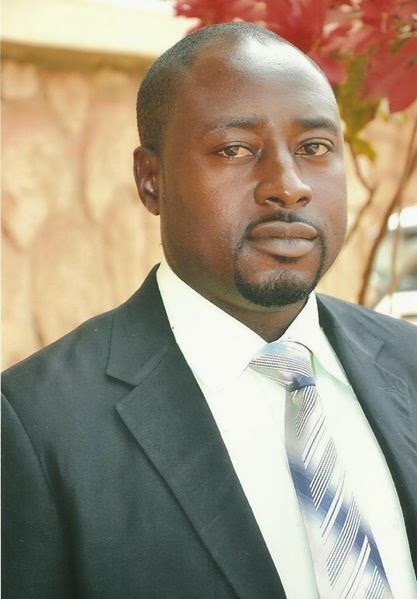Over
recent years, the Cameroonian government has demonstrated a commitment to
improving women’s rights across the country. Cameroon is party to the major
international treaties and forums concerning women’s rights, including the
Convention on the Elimination of All Forms of Discrimination against Women
(CEDAW) and the Beijing Declaration Platform for Action. As such, it
constitutionally recognizes gender equality and has actively encouraged women’s
political participation at a national level. The Cameroonian government
supports women’s initiatives, originating both from the Ministry of Women’s
Affairs as well as from gender-related non-governmental organizations (NGO’s).
Barriers to female education have been lifted and, to a certain extent,
overcome: all Cameroonians have access to primary school education while
secondary school is heavily subsidized, allowing for more girls to attend
school. Gender equality has been integrated into higher education as well,
evidenced by the fact that many Cameroonian universities offer courses and
degrees in women’s studies.
Unfortunately,
social, economic, and political inequality is still a reality for many women
across the nation, especially in the rural areas. Women routinely face the
oppression of traditionally-prescribed social roles in which they are confined
to domestic, farm, and retail work while being simultaneously denied a voice in
their families, societies, and local government. There is an overwhelming
prejudice on behalf of men—and even women—that females are not competent to
assume leadership roles in the community.
While
the number of women working in the public, private, and military sectors has
increased substantially over the last thirty years, women still face several
career-related problems. There are several fields—law, medicine, business—in
which women are seen as incompetent to participate. Even in these fields, women
are often shut out of top-level decision-making positions and instead relegated
to jobs such as administrative assistants, communications officers, and
secretaries. Women are also prone to sexual harassment under a
“sex-for-promotion” policy that still exists in public and private service.
Domestic
violence and sexual abuse are still too prevalent in Cameroonian society. Not
only are these incidents grossly underreported, but furthermore, when women do
speak out against abuses they’ve suffered, the authorities often take their
statements and then tell them to return to their husbands and attempt
reconciliation in the same violent atmosphere. The courts also tend to be
prejudiced against women who succeed in bringing domestic violence cases to
Cameroon’s
laws remain deeply discriminatory towards women and, despite observations and
recommendations made by the CEDAW Committee to the Cameroon government in 2000
and 2009, no legal reforms have been undertaken to increase protection of
women’s human rights. Furthermore, customary law is applied alongside statutory
law, creating numerous contradictions and inconsistencies.
Penal Code
–
Adultery is systematically punishable if committed by a woman, but is only
punish- able when committed by a man if it is “habitual” or takes place in the
matrimonial home (art. 361).
–
Abortion is criminalized, except if the mother’s life is in danger or if
pregnancy is the result of rape (arts. 337 and 339).
–
Rape is criminalized, unless it takes place within marriage (art. 296).
Civil Code
–
The minimum age for marriage is 15 years for girls and 18 years for boys (art.
52). Girls under 18 are not required to consent to marriage, parental consent
is sufficient (art. 49).
–
The man can choose which matrimonial regime applies (monogamy or polygamy). If
no choice is made, the couple is married under common law, which allows
polygamy and community of marital property. The payment of dowries is
authorized (art. 70).
–
The husband is considered to be the head of the family (art. 213). He also has
the sole right to determine the family domicile (arts. 108 and 215) and, in the
interest of the household and the children, may prevent his
wife from taking
employment (Regulation 81-02, implementing the Civil Code).
 |
| Tamukong Elvis Female Legal Right's Advocate |
–
Women are not entitled to full use and enjoyment of property (arts. 1421 and 1428).
The husband has the right to administer communal marital property, thereby
giving him the right to sell or mortgage the couple’s property without his
wife’s consent. These provisions are contrary to the Constitution.
These
issues do not just disenfranchise women, strip them of their human rights, and
jeopardize their well-being; they also put society at risk. When one-half of a
population is being oppressed and unfairly treated, the society as a whole will
suffer from retardation in political, economic, and social growth. Yet, the
challenges in achieving gender equality are multi-faceted and complex. Social
attitudes, traditions, and norms must be changed before women can achieve full
equality with men. Yet, the government, civil society organizations, and
individual citizens must come together to do their part by educating the public
on proper gender relations. Women, especially in the villages, must have the
systemic and social mobility to take political and economic leadership
positions. Education equality must be rigorously continued. Laws concerning
gender equality and women’s rights cannot exist solely on paper; the government
must ferociously implement the standards and legal provisions it has signed and
enacted.